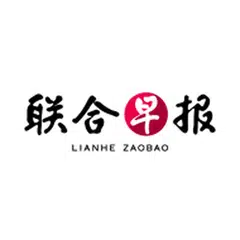A mountain to climb: New KMT leader Eric Chu and his hope for peaceful cross-strait relations
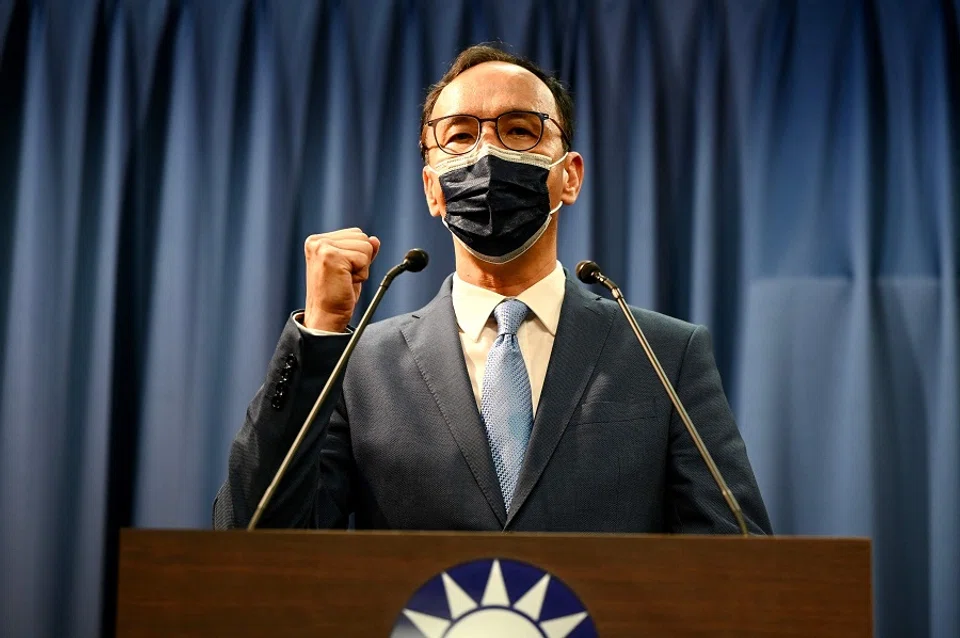
Former Kuomintang (KMT) chairman Eric Chu Li-luan has reprised his role, ousting incumbent Johnny Chiang. The congratulatory letter sent by Chinese Communist Party (CCP) General Secretary Xi Jinping and Chu's subsequent reply have been scrutinised by the ruling Democratic Progressive Party (DPP) and Taiwanese public opinion. Chu's first cross-strait dilemma has arrived even before he has had time to warm his seat.
From the congratulatory letter, it appears that adhering to the 1992 Consensus and opposing Taiwan independence is a shared political basis of the KMT and CCP and the biggest source of their commonality. Analyses note that Chiang did not receive a congratulatory message from the CCP after he won the by-election last year because his stance on the 1992 Consensus differs from Chu's.
Chu abides by the 1992 Consensus while Chiang advocates "a 1992 Consensus based on the constitution of the Republic of China", which does not sit well with Beijing.
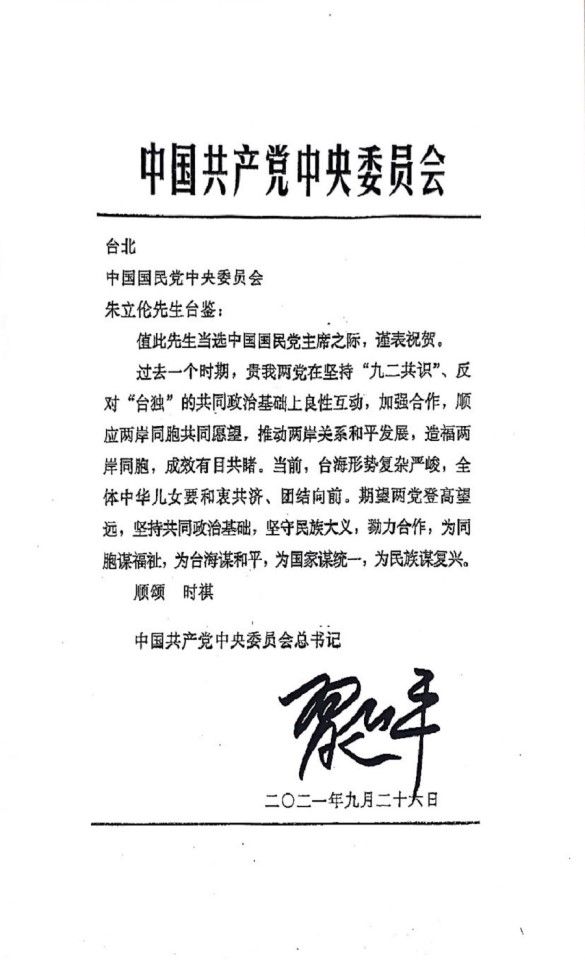
As pointed out in an editorial in Taiwan's Want Daily (《旺报》), Chu vowed to "rebuild cross-Taiwan Strait exchange platforms and communication channels" after winning the election. Beijing could have realised that the cooling of relations between the KMT and CCP must not go on and seen that wanting nothing to do with Taiwanese political parties and politics would only result in more work to be done. This is perhaps why Beijing resumed the practice of sending a congratulatory message despite finding Chu "unsatisfactory but still acceptable".
But the most obvious difference in their letters is Xi's mention of "seeking national reunification" (为国家谋统一) for the first time. Chu, on the other hand, did not respond to this part of the message...
The differences
Chu responded positively to Xi's congratulatory message as well.
Other than the 1992 Consensus and opposition to Taiwan independence, there are other commonalities between the KMT and CCP. For instance, Xi referred to everyone as "the sons and daughters of the Chinese nation (中华儿女)", while Chu spoke of people on both sides of the Taiwan Strait as "Yan Huang Zisun (炎黄子孙, lit. descendants of Yandi and Huangdi, referring to an ethnocultural identity based on a common ancestry), demonstrating that both leaders hold the same views in terms of the common culture and blood relationship between people on both sides of the Taiwan Strait.
Also, Xi described the cross-strait situation as "complex and grim", Chu concurred, illustrating that both leaders agree on the state of current cross-strait relations. Next, Xi also hoped that both parties would strive to attain greater heights and seek peace in the Taiwan Strait, while Chu hoped that both parties would enhance mutual trust and integration to advance the peaceful development of cross-strait relations, highlighting the fact that both leaders are looking forward to future cooperation.
But the most obvious difference in their letters is Xi's mention of "seeking national reunification" (为国家谋统一) for the first time. Chu, on the other hand, did not respond to this part of the message, triggering different interpretations from the pan-Blue and pan-Green camps.
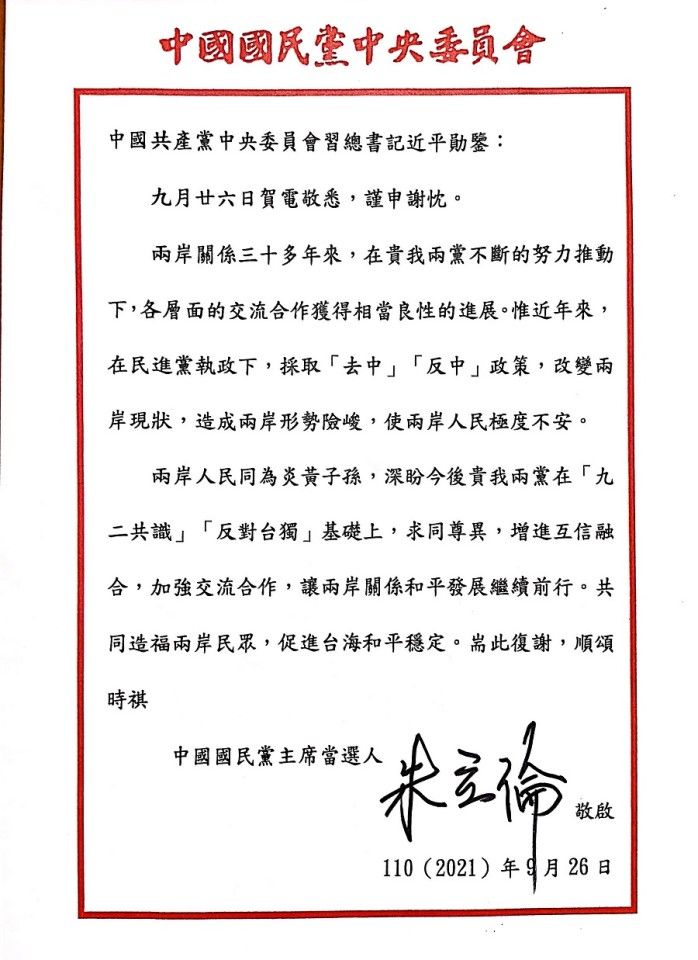
Want Daily, which is friendly towards the mainland, optimistically believes that Chu has already responded to Xi's call for "reunification" by mentioning "integration" and hopes to seek common ground amid differences. The manner of dealing with these differences should also be the new direction for future interactions between the KMT and CCP that guides the development of cross-strait relations.
The editorial in Want Daily also pointed out that Chu had expressed in his victory speech that he would restart cross-strait communication in line with the party's constitution and platform. Besides, the constitution of the KMT opens with the mention of the goal of achieving a unified country, implying that the KMT will not stray away from or change the ultimate goal of reunification with the mainland.
The editorial also said that "reunification" and "reunification supporters" are often demonised and stigmatised by the DPP in Taiwan society. Comparatively speaking, "integration" is not viewed as negatively as "reunification" among the Taiwanese. Thus, seeking cross-strait integration on the existing foundation of peaceful development should be the common goal of the KMT and CCP. Also, it is the responsibility of the KMT, as well as the CCP, to overcome the challenge of the Taiwan people's rejection of the word "reunification".
If so, how far will Chu go in terms of enhancing cross-strait integration? Will he organise the Kuomintang-Chinese Communist Party Forum again? Will Beijing arrange a "Xi-Chu Summit" to affirm ties? And how will Taiwan society react? The world is waiting to see what happens.
'Seeking common ground while respecting differences'
Li Chao-li, CEO of the pan-Green New Power Party think tank, noted that Chu, who referred to his election opponent Chang Ya-chung as a "red unificationist scholar", did not give a clear response to Xi's call for "reunification", and had side-stepped the issue by using the term "respecting differences". Li thus inferred that the KMT's cross-strait policy will be its biggest challenge.
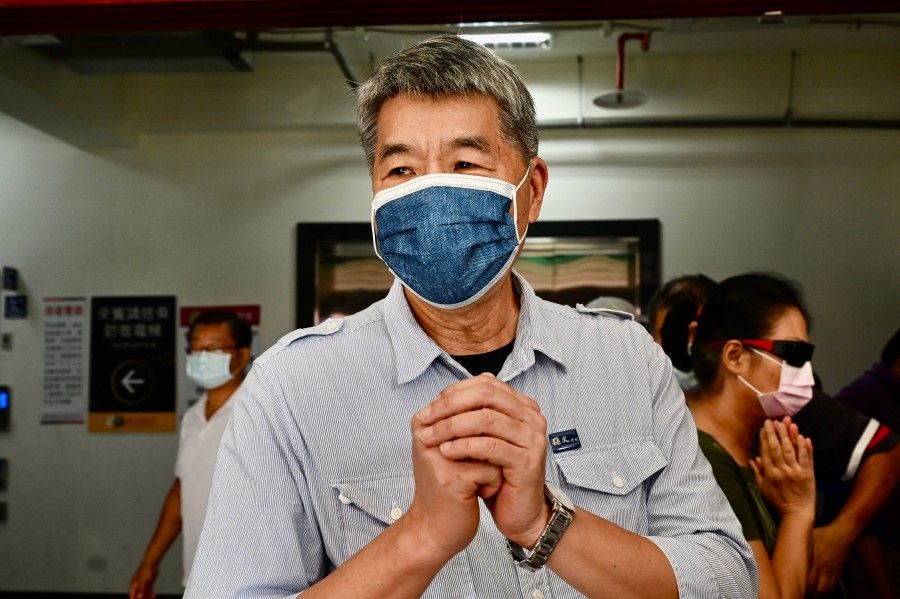
In mainland Chinese state media Xinhua News Agency's report, Chu's mention of "seeking common ground while respecting differences" (求同尊异) was left out.
Li said that the KMT is a political party that strives for a unified China and thus naturally belongs to the "reunification camp". Since Chu condemns the "red unificationist" stance, he will call Chu a "Blue unificationist" politician for now. Li thinks that the only difference between these two unification camps is that one insists that "this China is called the 'Republic of China'", while the other thinks that "as long as it is 'one China', the name does not matter".
But the problem is, the so-called idea that "both sides of the Taiwan Strait belong to one China and this China is called the Republic of China" that the "blue unification camp" believes in is not only becoming less and less feasible, it is less and less popular in Taiwan as well. Li said that since the "blue unification camp" is at its wit's end, it is only left with the path of the "red unification camp". But the outcome of the KMT chairmanship election has proven that the KMT is aware that "red unificationist" ideas are not aligned with mainstream public opinion in Taiwan. Hence, the KMT tried its best to save itself - instead of insisting that Chu must win the election, it is more accurate to say that Chang must lose.
Li thinks that a huge challenge the KMT currently faces is that following the mission mandated by the constitution of the KMT - to achieve a unified country - is at odds with mainstream public opinion in Taiwan society.
According to a survey in September conducted by the National Chengchi University commissioned by the Mainland Affairs Council, a vast majority of people - 85.4% - want to maintain the status quo.
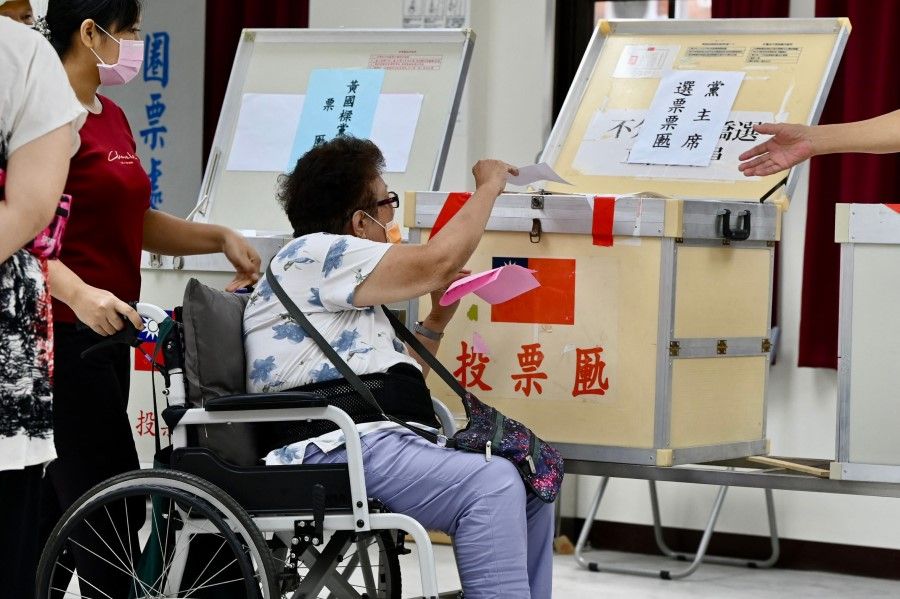
Will Beijing be satisfied with maintaining the status quo?
When it comes to cross-strait relations, the general sentiment in Taiwan is to maintain the status quo. According to a survey in September conducted by the National Chengchi University commissioned by the Mainland Affairs Council, a vast majority of people - 85.4% - want to maintain the status quo.
In fact, maintaining the status quo is Chu's cross-strait policy too. During his presidential bid in 2016, his cross-strait policy was defined as maintaining the status quo and letting the next generation decide the direction to go. Early this month, on a radio interview, he was asked whether he would pursue reunification if he was elected as president; he replied that cross-strait relations are important but there cannot be any unexpected moves and the KMT constitution cannot be changed, so realities and the current situation have to be considered and most people now want to keep things as they are.
But will Beijing be satisfied with the status quo?
An article published 25 September on cankaoxiaoxi.com titled "The Cross-Strait Test for KMT's New Chairman" said the KMT has gradually lost its identity and direction in recent years, and the "status quo" that it says it wants to maintain has long been shifted by the DPP to become unrecognisable, and the cross-strait "status quo" that would benefit the KMT no longer exists.
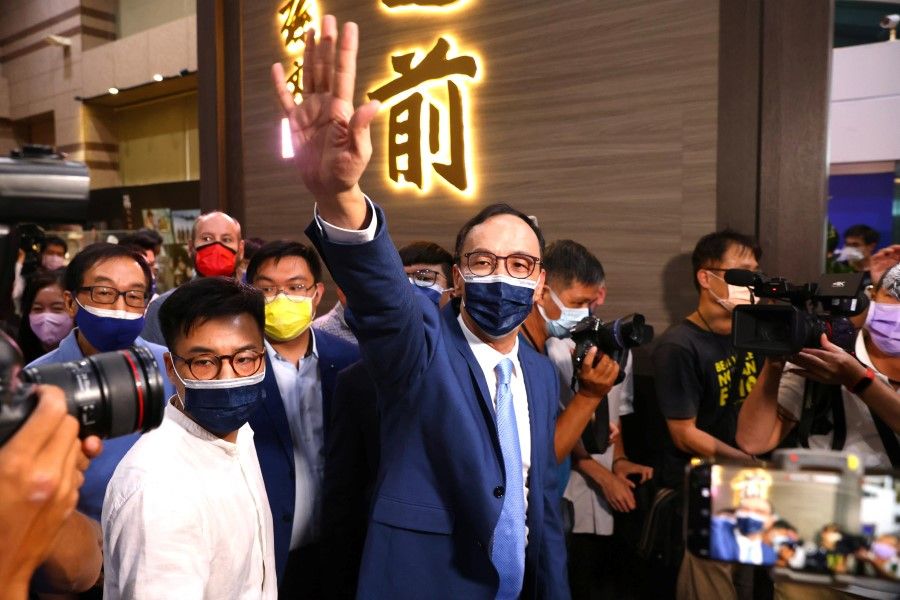
The article said the KMT has set its own restrictions and cannot move forward on cross-strait policy. Major political legacies like its "China" concept and the Three Principles of the People (those by revolutionary leader Sun Yat-sen which are often described as nationalism, democracy, and people's livelihood) have been smeared by the pro-democracy green camp, while some people in the KMT are unwilling to shoulder a political legacy with so-called "deep blue" pro-establishment elements, so much so that even talking about the early history of the KMT is gradually becoming politically incorrect.
Besides reiterating the 1992 Consensus and opposition to Taiwan independence, will it stick closer to the "blue" or "red" line? Or stick with the current middle line?
The cross-strait tussle and relations with the US
That Chang Ya-chung - labelled by Eric Chu as a red unificationist scholar, and who proposed signing a cross-strait peace memorandum - won over 30% of votes shows a significant share of blue voices within the KMT, which is probably a positive signal for Beijing.
No wonder a blue camp legislator who declined to be named felt that Chang gaining the support of 30% of party members shows that within the KMT, there is still some degree of agreement with the idea of "cross-strait peace, one great China", and "what the CCP sees is Chang's high vote share, and not Chu's win".
Clearly, if Chu intends to win the 2024 presidential election on the KMT ticket, he still has many key issues to resolve, including the KMT's direction in cross-strait relations. Besides reiterating the 1992 Consensus and opposition to Taiwan independence, will it stick closer to the "blue" or "red" line? Or stick with the current middle line?
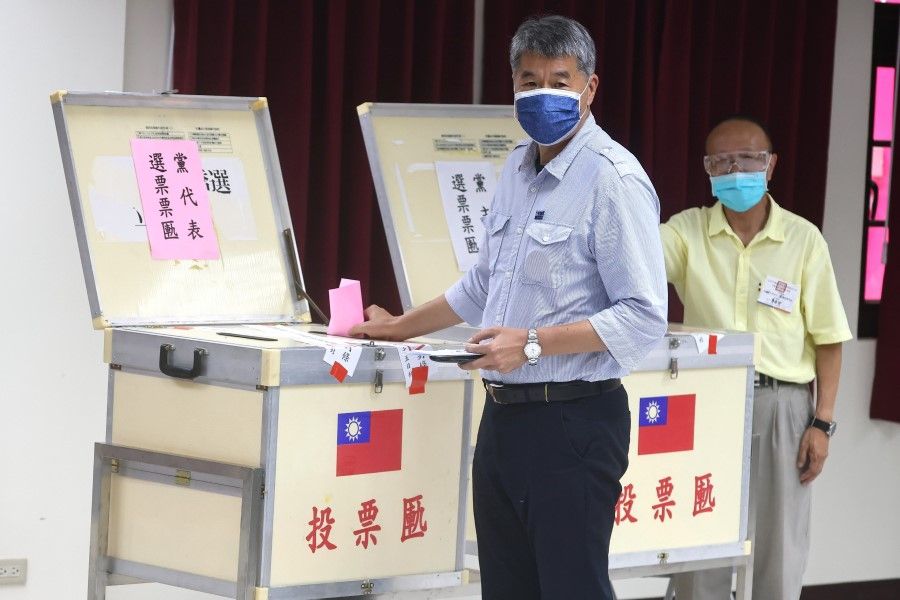
In addition, other issues need to be resolved, such as the KMT's lack of resonance with the younger group, the divisions resulting from the chair elections, and how to handle relations with the US.
An analysis piece on the BBC Chinese website said that Chu's win symbolised the "KMT mainstream" defeating the pro-reunification academic Chang, an upstart with ideas of quick reunification. However, within the party, Chang is also under a lot of pressure from "fans" of former presidential candidate Han Kuo-yu, as well as veteran party members, which means that before the 2024 presidential election, the tussling and divisions within the party are deepening, in terms of cross-strait relations and relations with the US.
The analysis said with Chu's win, people are starting to take note of the KMT's direction in cross-strait relations, including whether Chu could resist the strong "pro-China, anti-US" sentiments within the KMT.
For Taiwan, cross-strait relations and US-Taiwan relations have to be prudently handled, and each affects the other.
Chu's image of having good relations with the US has always been a focus in Taiwan politics. In this election for party chair, Chang brought up Chu's friendly relations with the US, and questioned if he was a US "agent".
According to reports, when asked in April about the progress of Taiwan-US relations, Chu said: "The Republic of China has always supported democracy and freedom, and being pro-US or supportive of all democratic and free nations is what we must do. And not just the US, but including other democratic countries like the UK and EU. This is not me playing the pro-US card. It is the consensus of the nation."
It is still not known if he will be able to pull the party together and win next year's local elections and become the KMT's 2024 presidential candidate.
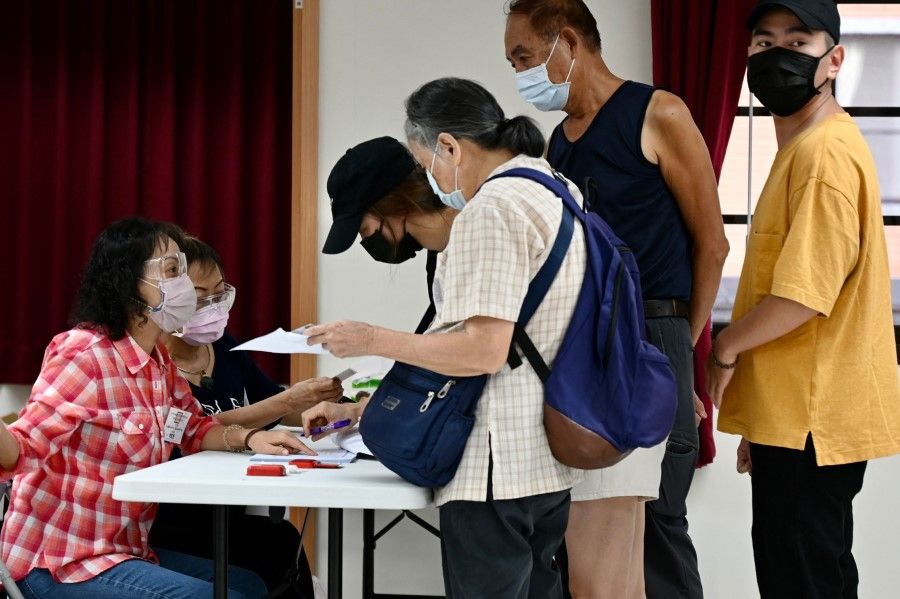
Some analysts have it that Chu's emphasis on the 1992 Consensus and opposition to Taiwan independence is a signal to China, and probably also stating its position to the US, to stress that the KMT is more able than the DPP to stabilise US-Taiwan and cross-strait relations, and Taiwan under the KMT will not become a troublemaker or flash point in the China-US tussle.
After being elected party chair, Chu shouted slogans like "The blue camp will fight" and "The blue camp will win". He also hit back strongly at criticisms from the DPP, seeming to build momentum.
Only thing is, Chu did not win more than half of the votes, showing that the KMT still has questions about his leadership ability and fighting will. It is still not known if he will be able to pull the party together and win next year's local elections and become the KMT's 2024 presidential candidate.
Maintaining interactions with the mainland while minimising the damage of the DPP's "red bashing"; leading the KMT in guiding the Taiwanese society to align with its goals and intentions, steadily developing along a common path - these challenges will be a major test of Chu's political wisdom and abilities.
Now that he is party chair, his work has just begun.
Related: Beijing bans Taiwan fruit imports: Impoverishing Taiwan to achieve reunification? | The median line of the Taiwan Strait: No longer a boundary for mainland China | Peaceful or armed reunification: Are top Chinese advisers divided over Taiwan? | Will the Taiwan Strait issue be internationalised under Biden? | More mainland Chinese elites supporting armed unification with Taiwan: A cause for concern?
